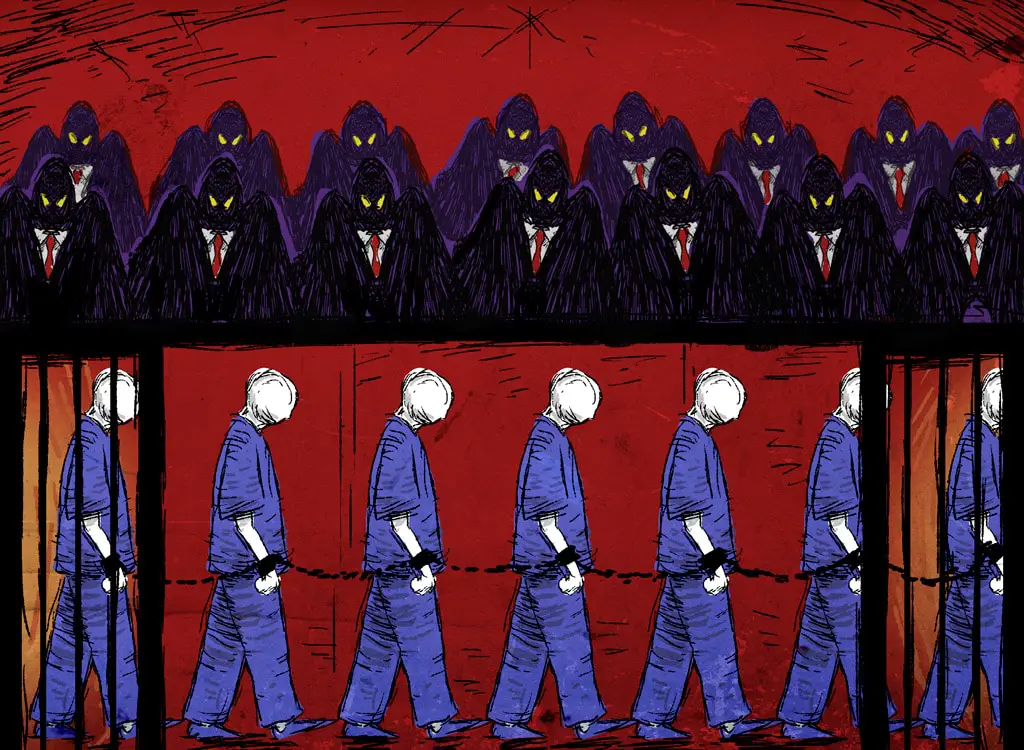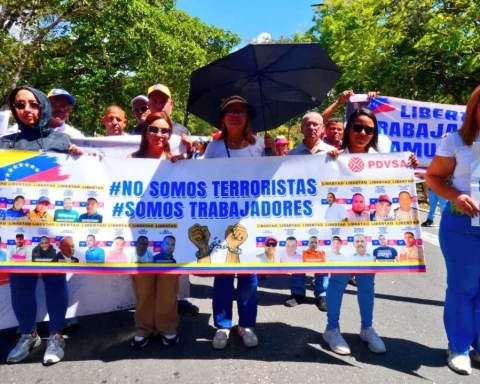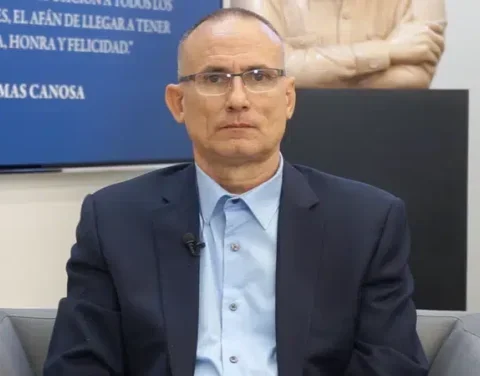The Judiciary, aligned with the Daniel Ortega regime, has disqualified for life at least 14 prisoners of conscience from holding any public or popularly elected office through the approval of “accessory penalties” to their sentences, denounced the Center Nicaraguan Human Rights (Cenidh).
The defense organization described the judicial action as a “legal aberration”, which was evidenced in the sentence of ten years in prison, handed down by Ortega judge Nadia Camila Tardencilla Rodríguez, against six priests and a layperson from the Diocese of Matagalpa, for the alleged crimes of conspiracy and propagation of false news, this Monday. The judicial disqualified the religious from holding any public office in perpetuity, contrary to the period established by the main penalty.
“With this last sentence it was exposed that the regime is committing crimes with impunity and the so-called Judiciary, by violating what the laws say and acting against the express law, incur in the commission of crimes typified in the Penal Code of the Republic of Nicaragua, for which they must be judged”, denounced Cenidh.
The Nicaraguan Penal Code determines in articles 46, 47 and 66 the existing penalties in the country, their application and classification. In the case of accessory penalties, as established by the Judiciary, these “they will have the duration that respectively has the main penalty – in the case of priests, ten years – unless the law establishes otherwise”it reads.
For Cenidh “this is an affront to the Law, an affront to intelligence, an affront to the international community and international organizations for the protection of human rights, which are constantly insisting on condemning violations of the guarantees of due process, the that political prisoners in Nicaragua are subject to” reads the statement published by the organization on its Twitter account.
???URGENT| CENIDH DENOUNCES the most recent legal aberration of the ORMU regime against political prisoners: the disqualification for life from holding public office or by popular election and the suspension of political rights.
link:https://t.co/Bts83V7nIx pic.twitter.com/PS9pCOG4m9
— Cenidh (@cenidh) February 7, 2023
Judges apply new repressive pattern
The approval of these accessory penalties, according to Cenidh, is a “new repressive action”, which is not only being applied to the most recent prisoners of conscience, but also to political prisoners with a final sentence of 2022.
In these last cases, the addition to the sentence reads as follows: “Keep the convicted person… as a traitor to the homeland, consequently he is permanently disqualified for…”. The judicial decision responds to the request of prosecutors related to the regime, which expressly violates articles 55 and 56 of the Criminal Code, which indicates the duration of these “penalties depriving of other rights”, “for which reason they can never be applied indefinitely”, clarifies Cenidh.
“We have a list of more than 14 political prisoners to whom the same application has been made, with the aggravating factor that the judges at the request of the prosecutors, without any formality, without having any power to change a letter of a sentence that is firm, they alter its content and it is the last straw that they are not only doing it with those sentences that have not yet been sent to the higher instance due to the appeals filed, they are even criminally modifying others that are or have been ruled by the Supreme Court of Justice (CSJ)”, continued the organization.
This new repressive pattern is part of the “total destruction, not only of the institutional framework but of any vestige of legal security that remains in the country,” said Cenidh.
In Nicaragua there are 245 political prisoners confined in different prison systems. From 2021 to date, most have been convicted of the crimes of conspiracy to undermine the national territory and propagation of false news, with sentences of between eight and 13 years in prison.

















